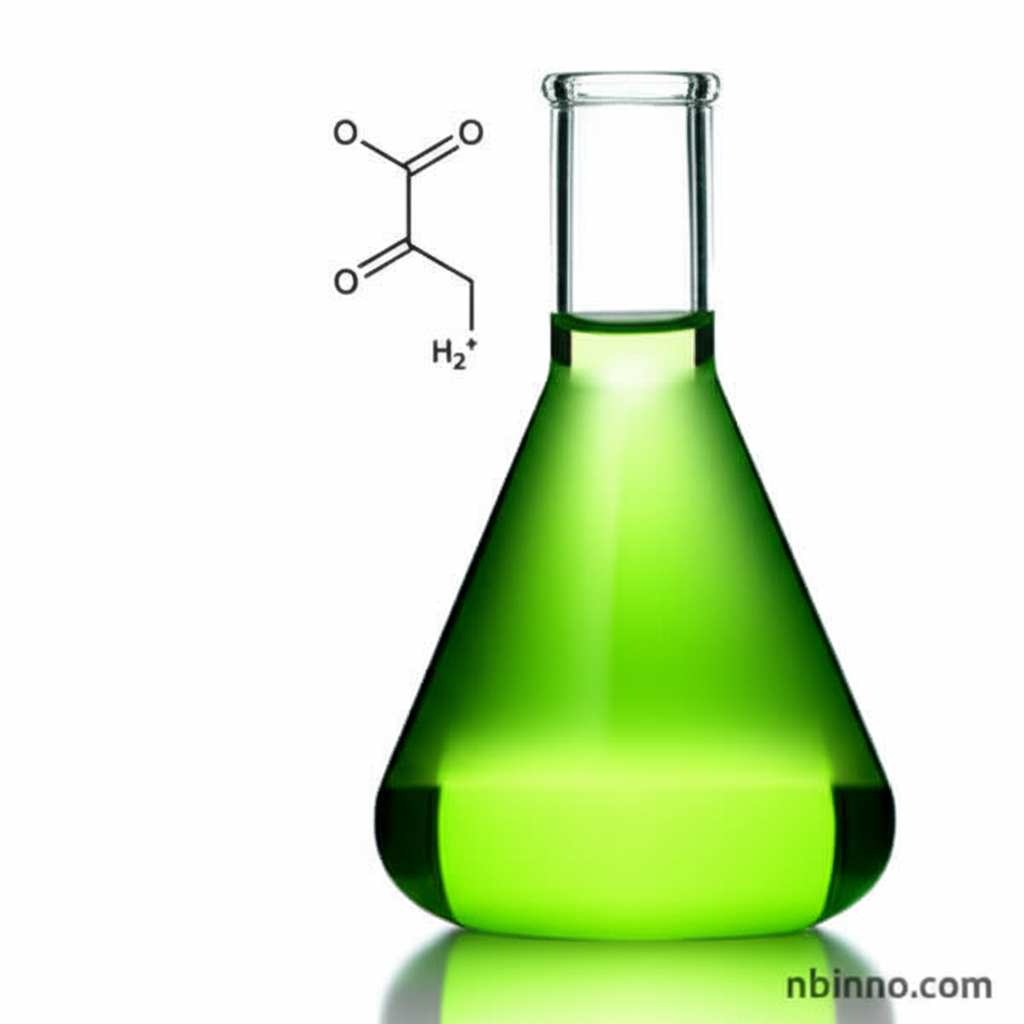1,2-Ethanedithiol: Your Essential Building Block for Advanced Synthesis
Discover the key properties and applications of 1,2-Ethanedithiol, a vital component in modern chemical processes.
Get a Quote & SampleProduct Core Value

1,2-Ethanedithiol
1,2-Ethanedithiol is a critical fine chemical known for its role as a versatile building block in organic synthesis and as an effective ligand for metal ions. Its unique chemical structure and properties make it indispensable in the development of novel materials and complex molecules.
- Leverage the power of 1,2-Ethanedithiol CAS 540-63-6 for your complex organic synthesis projects, ensuring high purity and consistent performance.
- Explore the diverse 1,2-ethanedithiol uses in organic synthesis, from creating cyclic compounds to functionalizing polymers.
- Understand the essential 1,2-ethanedithiol safety precautions required for its handling and storage, ensuring a safe working environment.
- Discover the utility of bifunctional mercaptans applications, where 1,2-ethanedithiol plays a significant role in developing advanced materials.
Key Advantages of Using 1,2-Ethanedithiol
Enhanced Reactivity
The two thiol groups in 1,2-ethanedithiol offer enhanced reactivity, making it an ideal participant in various chemical reactions, which is crucial for achieving desired synthetic outcomes.
Metal Complexation Capabilities
As a potent ligand for metal ions, 1,2-ethanedithiol is instrumental in coordination chemistry and catalysis, enabling advancements in various industrial processes and research applications.
High Purity and Quality
Sourced with stringent quality controls, this sulfur compound for chemical synthesis guarantees high purity, essential for sensitive reactions and downstream applications where impurity levels are critical.
Key Applications
Organic Synthesis
1,2-Ethanedithiol is a fundamental reagent in organic chemistry, used in the synthesis of heterocyclic compounds, dithioacetals, and other sulfur-containing organic molecules.
Material Science
Its ability to form stable complexes makes it valuable in the development of polymers, metal-organic frameworks, and functional materials.
Coordination Chemistry
Serves as a bidentate ligand, forming stable chelates with various metal ions, finding use in catalysis and the study of metal complexes.
Pharmaceutical Intermediates
As a building block, it contributes to the synthesis pathways of various pharmaceutical compounds and intermediates, highlighting its role in drug discovery and development.
Related Technical Articles & Resources
Why Choose Us?
Leverage our expertise and state-of-the-art infrastructure to accelerate your journey from discovery to commercial success.
Global Experience
With 20 years of R&D, manufacturing, and sales experience, we proudly serve clients across 60 countries and regions worldwide.
Advanced Facilities
Our in-house R&D laboratory, pilot platform, and large-scale production workshop are equipped to meet the audit requirements of global customers.
Seamless Scalability
We facilitate a perfect transition from small-scale lab requirements (grams) to full commercialization (hundreds of tons).
